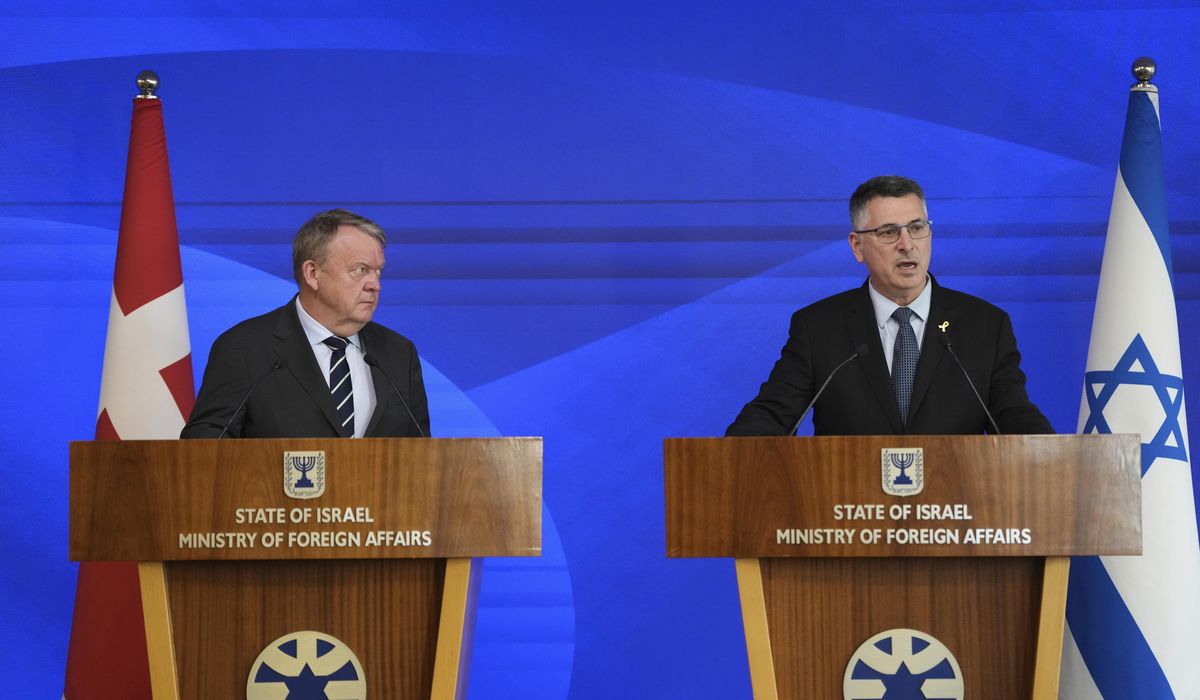


White House officials on Monday expressed cautious optimism that a deal to pause 15 months of grinding war in the Gaza Strip and secure the release of Israeli and other foreign hostages held by Hamas could be struck in the final week of President Joe Biden’s term in office.
On Monday, National Security Adviser Jake Sullivan said he was more hopeful about a ceasefire deal now than at any time since the war in the Palestinian enclave erupted following the October 6, 2023 attack on Israel that left more than 1,200 people dead and 250 taken hostage.
“We are close to a deal, and it can get done this week,” Mr. Sullivan told reporters. “I’m not making a promise or prediction, but it is there for the taking. We are going to work to make it happen.”
Mr. Biden wants to reach a ceasefire before he leaves the White House on Jan. 20 and turns over authority to President-elect Donald Trump. On Sunday, he discussed the ongoing negotiations in Doha, Qatar with Israeli Prime Minister Benjamin Netanyahu.
The ceasefire between Israel and Hezbollah in Lebanon, the fall of the Assad regime in Syria, and the weakening of Iran’s power in the region have “fundamentally changed” the current dynamic in the Middle East, Mr. Biden told his Israeli counterpart, U.S. officials said.
“He stressed the immediate need for a ceasefire in Gaza and return of the hostages with a surge in humanitarian aid enabled by a stoppage in the fighting under the deal,” the White House said following the telephone conversation.
Some observers are urging that expectations of a breakthrough in Gaza be tempered. On multiple occasions, talks have stalled just as negotiators, led by U.S., Egyptian and Qatari officials, predicted they were on the verge of a deal. However, the imminent arrival of Mr. Trump to the White House has added a new element to the equation. He has warned Hamas that there would be unspecified “hell to pay” if they did not release the estimated 100 hostages still not accounted for before he takes office.
“It’s very clear that President Trump threatening and making it clear that there is going to be ‘hell to pay’ is part of the reason why we’ve made progress on getting some hostages out,” Vice President-elect J.D. Vance said on Fox News Sunday.
Mr. Trump has shown he’s not afraid to take even unprecedented military action against Tehran-backed militant groups like Hamas. He ordered the January 2020 strike on Baghdad International Airport that took out Iranian Gen. Qassem Soleimani, the head of the country’s Islamic Revolutionary Guard Corp’s elite Quds Force.
The search for a ceasefire in Gaza has brought about rare bipartisan cooperation between the outgoing Biden team and the incoming Trump administration. Mr. Trump dispatched his Middle East envoy, Steve Witkoff, to encourage Mr. Netanyahu to accept a ceasefire with Hamas.
“The coordination with the new administration on this issue has been good. President-elect Trump has made clear his interest in trying to get a deal … before his inauguration,” CIA Director William J. Burns told NPR on Friday.
Israeli Foreign Minister Gideon Sa’ar confirmed Monday that negotiations in Doha have made progress in recent days.
“Israel wants a hostage deal. Israel is working with our American friends in order to achieve a hostage deal,” Mr. Sa’ar said during a press conference in Jerusalem. “Soon we will know whether the other side wants the same thing.”
Muhannad Hadi, the UN’s Deputy Special Coordinator for the Middle East Peace Process, appealed to both sides to agree to a ceasefire during a visit on Sunday to Holy Family Church, the sole Catholic church in the Gaza Strip.
“Churches, mosques, civilians, and all civilian infrastructure, must be protected. They can only be protected by the end of this war; by a ceasefire,” Mr. Hadi said from the front steps of the church.
Mr. Netanyahu is facing pressure from right-wing figures in his own government to reject any ceasefire deal that doesn’t include the release of all hostages held by Hamas and effective Israeli security control of Gaza. Israeli Finance Minister Bezalel Smotrich, also the leader of the Religious Zionism Party which makes up part of Mr. Netanyahu’s governing coalition, called the emerging deal “a catastrophe for the national security of the State of Israel.”
“We will not be part of a surrender deal that would include releasing terrorist hostages, stopping the war, and dissolving its achievements that were bought with much blood, and abandoning many hostages,” Mr. Smotrich said Monday on X.
He’s not the only Cabinet member angry with Mr. Netanyahu’s efforts for a ceasefire. The Times of Israel is reporting that National Security Minister Itamar Ben Gvir, one of the most steadfast opponents of any deal with Hamas, is threatening to bolt the coalition with his Otzma Yehudit faction, potentially bringing down the Netanyahu government.
Opposition leader Yair Lapid, one of Mr. Netanyahu’s most ardent critics in the Knesset, offered to throw his political weight behind the government’s effort to secure a hostage deal. Mr. Lapid said he met a senior Qatari government official in Paris on Sunday who is involved with the hostage negotiations. He told him that Hamas wasn’t interested in torpedoing the ceasefire deal.
“I want to remind Netanyahu again – he doesn’t need Ben Gvir and Smotrich. I offered him a political safety net for a hostage deal,” Mr. Lapid said in a statement. “This offer is more valid than ever. If Netanyahu can and wants to make a deal, he and I will know how to close the details of the safety net in half an hour.”
• Mike Glenn can be reached at mglenn@washingtontimes.com.
